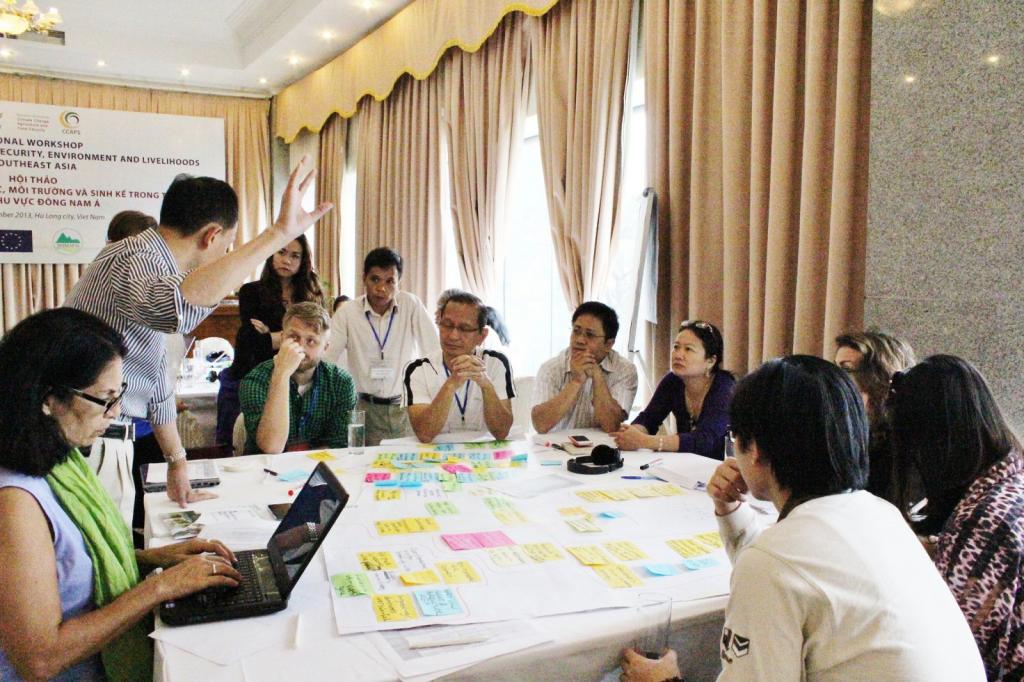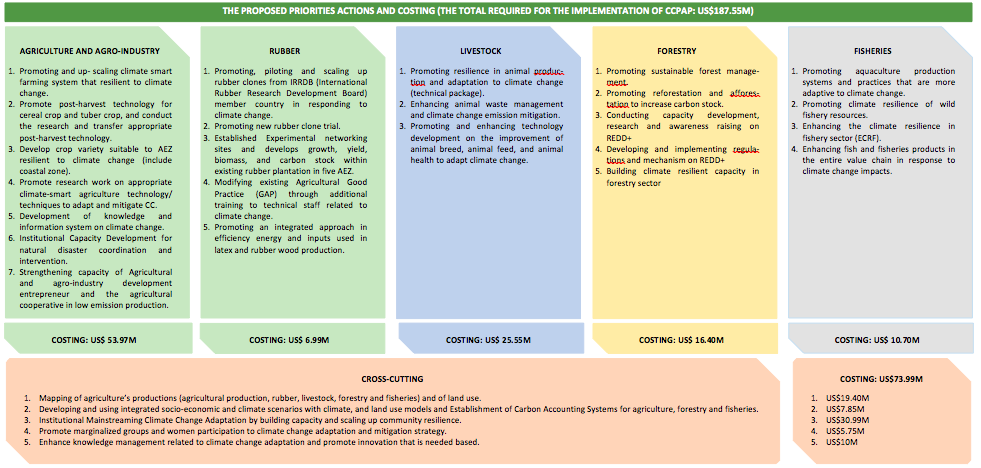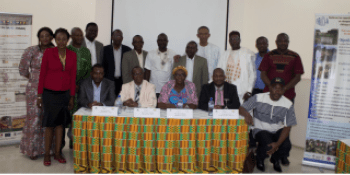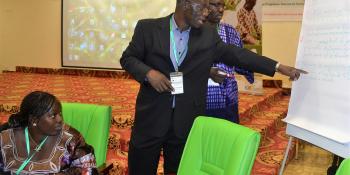Future scenario development now part of Cambodia's Action Plan for Agriculture

The dedicated work by CCAFS Scenarios team pays off as future climate and socioeconomic scenario development and climate-smart agriculture are now added to Cambodia’s policy landscape.
Developing and using integrated socio-economic and climate scenarios with land use models and Establishment of Carbon Accounting Systems for agriculture, forestry and fisheries”
Extract from the Cambodia’s Climate Change Priorities Action Plan for Agriculture (CCPAP), Forestry and Fisheries 2014-2018, June 2014
Today, Cambodia’s Climate Change Priorities Action Plan for Agriculture (CCPAP) features a scenario-guided priority-setting for Cambodia in the face of climate change, and a strong focus on climate-smart agriculture. In the plan, key practices and financial allocations have been set up to translate those words into actions.
This is the result of an intensive journey undertaken by the Cambodian Ministry of Agriculture, Forestry and Fisheries (MAFF) with the CGIAR Research Program on Climate Change, Agriculture and Food Security (CCAFS) and partners, the Food and Agriculture Organization's Economics and Policy Innovations for Climate-Smart Agriculture (EPIC) programme, and the United Nations Environment Programme (UNEP) World Conservation Monitoring Centre, that started in the regional scenarios workshop in Ha Long Bay, Vietnam, at the end of 2013.
The scenarios developed in this workshop were quantified using the GLOBIOM model, developed by International Institute for Applied Systems Analysis (IIASA) and the IMPACT model, developed by International Food Policy Research Institute (IFPRI).

Future scenarios participants hard at work at the most recent southeast asia workshop. Photo: REBEKKAH SPARROW
In this workshop, decision-makers, researchers, private sectors and knowledge brokers from Cambodia, Vietnam and Laos joined forces to develop scenarios on future socio-economic developments and potential climate impacts for Southeast Asia. These scenarios were developed to help test policies, investments and priority setting in the face of uncertain futures.
Before this workshop, stakeholder and influence mapping was conducted to build a strong network and group of participants, using tools from the CCAFS Systemic Integrated Adaptation (SIA) project. This helped CCAFS identify institutional forces and actors that make up official and de-facto decision and action spaces in Southeast Asia. It ensured a diverse group of participants in the workshop that could ensure action on climate-smart agriculture.
After the workshop, the Cambodian Ministry of Agriculture, Forestry and Fisheries expressed strong interest in building internal capacity on using scenarios for priority setting, as well as integrating CCAFS climate-smart agriculture research into their Action Plan.
An extract from the Cambodia CCPAP. Click on the image to enlarge.
Over the next nine months, CCAFS Scenarios team worked closely with the MAFF, building mutual trust and understanding to help develop the CCPAP and incorporate these elements. Translating the results of the scenario process into the key questions that decision-makers needed to ask was crucial, as was demonstrating the benefits of climate-smart agriculture and food system approaches.
After nine months of working together with the MAFF, it became important to ask, in a very active manner what the Southeast Asia scenarios would mean for Cambodia, what the key trade-offs were, and where the synergies lie with key policy makers. This translation process led to collaborative work on policy and budget design.
In the process, it was clear that the scenarios were offering structure to questions that decision-makers work with on a daily basis. The scenarios were used to create “safe spaces” to think freely about different policy futures. Careful facilitation was needed to create such spaces.
With scenario-guided planning and climate-smart agriculture as a part of the Prioritized Action Plan, Cambodia is better prepared to deal with the uncertainties of climate change, in a society where 85% of the labor force is still engaged in agriculture. But this is just the start of the journey! In the next years, the plan will be implemented, and the collaboration between CCAFS and its partners and the Cambodian government will continue to grow.
Read report from the Southeast Asia regonal scenarios workshop (PDF
Additional Scenario-blogs:
- The world in 2050: on the front line
- Thinking outside the box on climate change
- Looking for clues to navigate climate uncertainty
Joost Vervoort leads the work on Scenarios, and Rathana Peou works as Regional Scenarios Coordinator for Southeast Asia.




